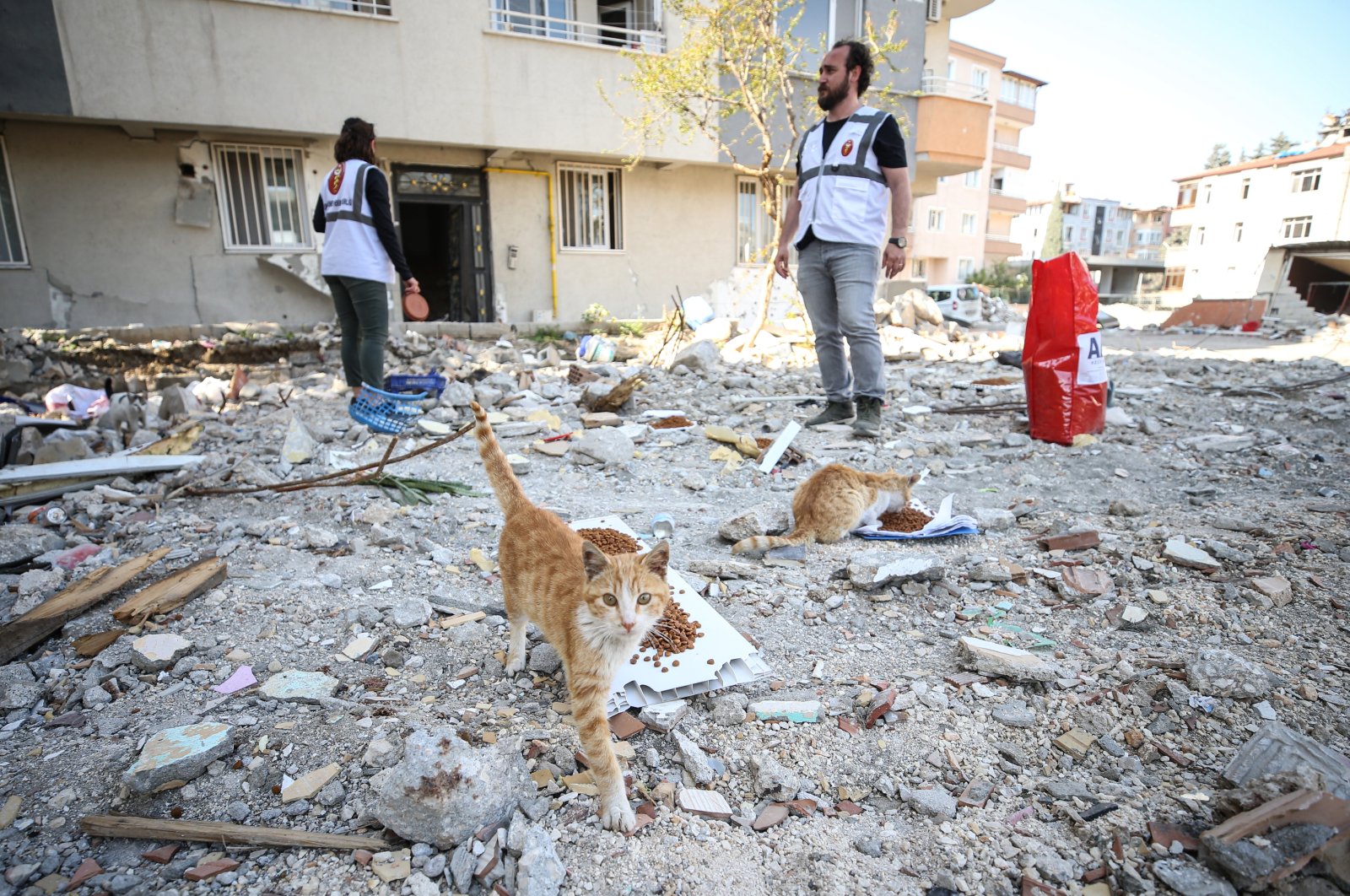
The nutritional needs of domestic and stray animals in the southeastern province of Hatay, one of 11 provinces ravaged by the powerful Feb. 6 earthquakes, were met with some 55 tons of pet food distributed since the first day of the disaster, Anadolu Agency (AA) reported Tuesday.
Under the coordination of the Amasya governor, teams affiliated with the 7th Regional Directorate of Nature Conservation and National Parks, Hatay Metropolitan Municipality, district municipalities and nongovernmental organizations (NGOs) continue their work for providing pet food for animals in need of care, including those rescued from the rubble in the earthquakes on Feb. 6.
Within the scope of the studies under the coordination of the Turkish Veterinary Medical Association, food for stray animals such as cats and dogs is left around the debris and living areas across Hatay.
The teams allocated in the province also support the nutritional needs of the pets of the earthquake victims living in tent and container cities and some households.
Amasya Governor Mustafa Masatlı, who was appointed as the coordinator in charge of animal health and care in the city, told AA the action to accommodate domestic and stray animals under suitable conditions was undertaken following the devastating earthquakes on Feb. 6.
Explaining that the animals rescued from the wreckage were treated at the animal collection and dispatch center in the Antakya, Iskenderun and Samandağ districts of Hatay, Masatlı said: "Animals that were left unattended on the streets were also taken to the shelters for examination, vaccination and care. Approximately 55 tons of food was supplied and distributed for our animals.''
In addition, Masatlı stated that veterinarians and volunteer citizens also contributed to the work.
''Apart from the nutrition and care work we provide for the animals in the shelters and on the street, we also provide food support to pets in tents and container cities where earthquake survivors reside, and provide treatment services to injured and sick animals through our volunteer veterinarians,'' he said.
